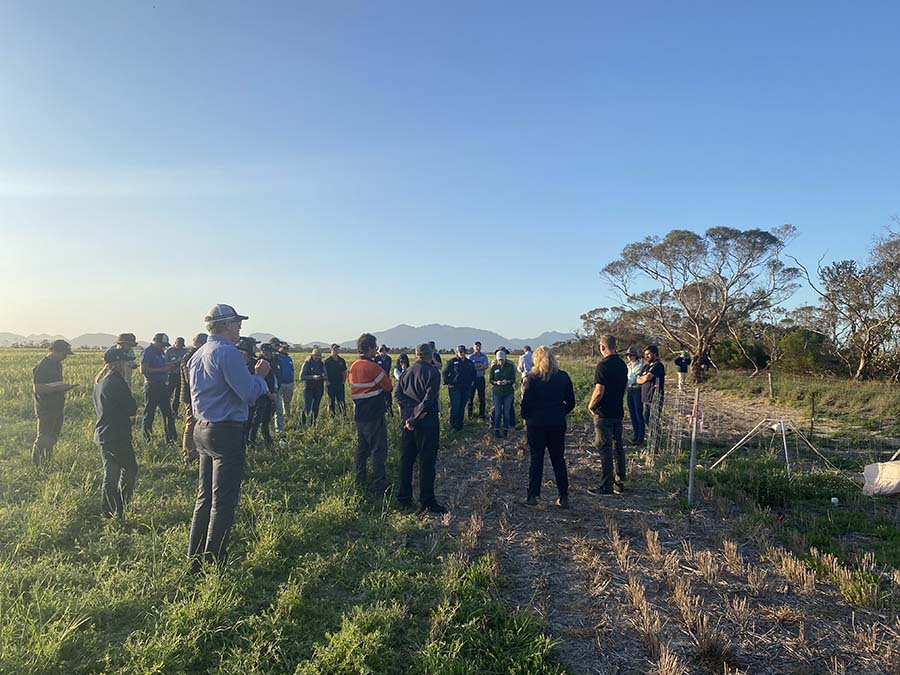A series of workshops run along Western Australia's south coast in September have armed grain growers with the latest snail management advice ahead of this season's harvest.
Snails are persistent, invasive pests for growers, especially in cooler climates like the Albany and Esperance port zones. They not only damage crops but also contaminate harvested grain, making it difficult to maintain quality.
Supported by GRDC investment, leading Australian snails experts attended six locations across three days on a roadshow spanning 1,300 kilometres between Beaumont north of Esperance to Perillup near Albany.
The roadshow was facilitated by Dr Kym Perry of The University of Adelaide and Dr Kate Muirhead from the South Australian Research and Development Institute (SARDI), a division of the Department of Primary Industries and Regions South Australia (PIRSA).
It included grower-group-led field days with South East Premium Wheatgrowers Association (SEPWA) and Stirlings to Coast Farmers (SCF) as well as grower meetings.
GRDC grower relations manager west Luke Dawson said more than 200 growers attended sessions in Beaumont, South Stirlings, Perrilup, Gairdner, Gibson and Munglinup.
"These locations are a cross section of the areas affected by small pointed and round snails," Mr Dawson said.
"Grower feedback and recent snail monitoring research indicate that snails are spreading beyond their traditional coastal habitats, expanding their range further inland.
"Managing infestations requires costly methods, including baiting, mechanical control, and stubble management, with some growers estimating snail management expenses as high as $80 per hectare.
"Snail contamination in harvested grain is the main issue they're facing, with some evidence of crop damage, particularly on emerging canola seedlings."

University of Adelaide entomologist Dr Kym Perry said WA growers were highly engaged on the issue of snails and keenly interested in all angles that research is pursuing. Photo: GRDC
University of Adelaide entomologist Dr Kym Perry said WA growers were highly engaged on the issue of snails and keenly interested in all angles that research is pursuing to try and expand the snail management toolbox for growers.
"Every farming system is different, and pest management must be tailored accordingly," Dr Perry said.
"We are focused on finding new solutions for snails that work in the west, where the small-pointed snail is the dominant pest, as well as in other regions".
Dr Perry said that in WA, preventing snails from hitchhiking to new areas on vehicles and fodder is a priority, as new infestations always start small before becoming a major problem in later years.
"Among a range of research avenues, we are seeking to exploit more opportunities to manage snails between growing seasons, to refine baiting timing using regional monitoring and alerts, and to expand biocontrol," he said.
"Managing snails successfully will always require an integrated approach, taking every opportunity to drive snail populations down. Timing and persistence are key".






